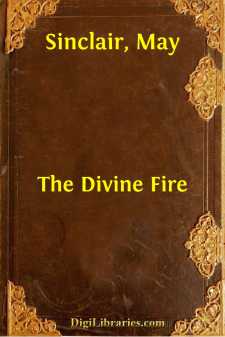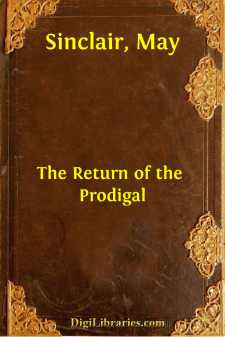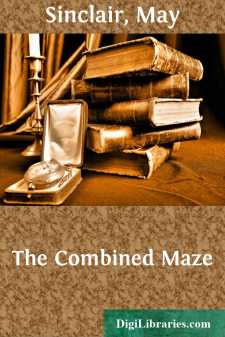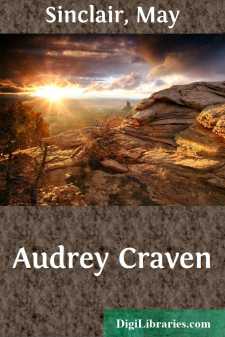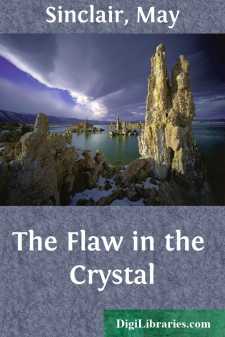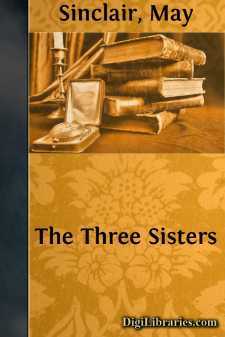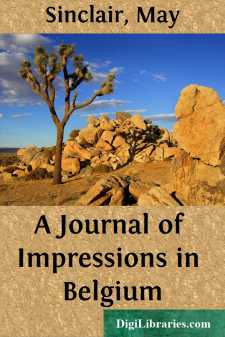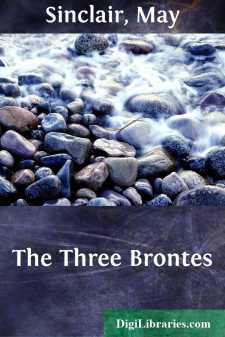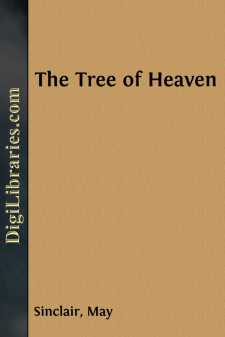Categories
- Antiques & Collectibles 13
- Architecture 36
- Art 48
- Bibles 22
- Biography & Autobiography 813
- Body, Mind & Spirit 142
- Business & Economics 28
- Children's Books 15
- Children's Fiction 12
- Computers 4
- Cooking 94
- Crafts & Hobbies 4
- Drama 346
- Education 46
- Family & Relationships 57
- Fiction 11828
- Games 19
- Gardening 17
- Health & Fitness 34
- History 1377
- House & Home 1
- Humor 147
- Juvenile Fiction 1873
- Juvenile Nonfiction 202
- Language Arts & Disciplines 88
- Law 16
- Literary Collections 686
- Literary Criticism 179
- Mathematics 13
- Medical 41
- Music 40
- Nature 179
- Non-Classifiable 1768
- Performing Arts 7
- Periodicals 1453
- Philosophy 64
- Photography 2
- Poetry 896
- Political Science 203
- Psychology 42
- Reference 154
- Religion 513
- Science 126
- Self-Help 84
- Social Science 81
- Sports & Recreation 34
- Study Aids 3
- Technology & Engineering 59
- Transportation 23
- Travel 463
- True Crime 29
The Divine Fire
by: May Sinclair
Description:
Excerpt
CHAPTER I
Horace Jewdwine had made the most remarkable of his many remarkable discoveries. At least he thought he had. He could not be quite sure, which was his excuse for referring it to his cousin Lucia, whose instinct (he would not call it judgement) in these matters was infallible—strangely infallible for so young a girl. What, he wondered, would she say to Savage Keith Rickman?
On Saturday, when he first came down into Devonshire, he would have been glad to know. But to-day, which was a Tuesday, he was not interested in Rickman. To eat strawberries all morning; to lie out in the hammock all afternoon, under the beach-tree on the lawn of Court House; to let the peace of the old green garden sink into him; to look at Lucia and forget, utterly forget, about his work (the making of discoveries), that was what he wanted. But Lucia wanted to talk, and to talk about Rickman earnestly as if he were a burning question, when even lying in the hammock Jewdwine was so hot that it bothered him to talk at all.
He was beginning to be sorry that he had introduced him—the exciting topic, that is to say, not the man; for Rickman you could scarcely introduce, not at any rate to Lucia Harden.
"Well, Lucia?" He pronounced her name in the Italian manner, "Loo-chee-a," with a languid stress on the vowels, and his tone conveyed a certain weary but polite forbearance.
Lucia herself, he noticed, had an ardent look, as if a particularly interesting idea had just occurred to her. He wished it hadn't. An idea of Lucia's would commit him to an opinion of his own; and at the moment Jewdwine was not prepared to abandon himself to anything so definite and irretrievable. He had not yet made up his mind about Rickman, and did not want to make it up now. Certainty was impossible owing to his somewhat embarrassing acquaintance with the man. That, again, was where Lucia had come in. Her vision of him would be free and undisturbed by any suggestion of his bodily presence.
Meanwhile, Rickman's poem, or rather the first two Acts of his neo-classic drama, Helen in Leuce, lay on Lucia's lap. Jewdwine had obtained it under protest and with much secrecy. He had promised Rickman, solemnly, not to show it to a soul; but he had shown it to Lucia. It was all right, he said, so long as he refrained from disclosing the name of the person who had written it. Not that she would have been any the wiser if he had.
"And it was you who discovered him?" Her voice lingered with a peculiarly tender and agreeable vibration on the "you." He closed his eyes and let that, too, sink into him.
"Yes," he murmured, "nobody else has had a hand in it—as yet."
"And what are you going to do with him now you have discovered him?"
He opened his eyes, startled by the uncomfortable suggestion. It had not yet occurred to him that the discovery of Rickman could entail any responsibility whatever.
"I don't know that I'm going to do anything with him. Unless some day I use him for an article."
"Oh, Horace, is that the way you treat your friends?"
He smiled....


